Nowadays, it seems that everyone is doing it, tweeting, posting, updating on their status, and more and more companies are climbing on the bandwagon. Corporations are using social media to recruit perspective employees, and college graduates are looking to take advantage of this (Weaver, 2011). In fact it is important to use these to our full advantage. LinkedIn is the main professional network for job seekers, but other platforms can also be used when searching for a new role. There are various ways you can use social media to sell yourself (Red, 2013).
Professional Profile
The first and most important aspect of social media is to be aware than anyone can see your profile, unless you ensure it is private. Even then once you say something, you can’t really take it back so be really wary about what you say. A lot of employers use social media to find out more about applicants and if they see pictures of you falling about drunk or your ‘tweets’ have a lot of swearing in them, they are likely to be put off straight away (Red,2013).
Reppler recently conducted a survey of 300 professionals who are involved in the hiring process at their company to understand the use of social network for screening job applicants.
Be Bold
The beauty of social media is that you can chat to other people and share comments so if you are currently on the job market, let others know with a comment or a tweet. You never know who on your Facebook or LinkedIn account may have an opening which is just perfect for you, so don’t be afraid to get yourself out there. The job market is tough enough so you need to be quite bold when looking for a new role, you can guarantee that other job seekers will be, so don’t be left behind!(Red, 2013) Weaver 2011 argues that if there is someone in your profession you would like to emulate, follow him or her on Twitter and also follow the same people they are following. Join the same blogs and discussion (re-tweet). Find out what those in your profession are talking about and offer intelligent input. This can get your access to useful information such as upcoming events or who is hiring talent. Social networking sites are now commonly used on a daily basis by HR Managers recruitment agencies and job sites to advertise job openings ( Belfasf Telegraph, 2013).
In 2009 CarrerBuilder.com and Loyola University New Orleans Alum, reported that 45% of more than 2600 hiring managers said they use social network sites to search for background information on potential candidates (Weaver, 2011). Reaffirming how important is to be engage on your profession on social network.
Grow your Network
This is particularly relevant for LinkedIn as it is designed for professional networking. If you want to get yourself known and give yourself the best chance of finding a new role, you need to grow your network. Connect with as many people as possible, particularly those who are within the same industry you are looking to work.
Digital First Impression
The same ideas [first impression] that applies with your online image on your Linkedin page will also apply to your FaceBook page. Make sure that everthing you so supports those characteristics about yourself that you want to present. That is essentially what your online image is (Weaver, 2011). Students should post 80% professional stuff, and 20% personal stuff, because hiring professionals not only use social media to recruit, but when they get a resume from other sources they will Google the applicants name looking for their profile. So give them something positive to find, sell your talents and accomplishments and use social media to get your message out to those who are hiring and recruiting (Reppler, 2013). How you present yourself online is a snapshot of your decision-making ability and your integrity (Millard, 2008)
Corinne Mills who is MD of Personal Career Management suggests that when using LinkedIn you should:
- Your profile should look professional and your photo should look presentable and business like
- Make sure that your profile is up-to-date with your latest work experience and you have a well-written summary that touches on your experience, interests and where you’d like to go in your career
- Use your profile as a tool to help make yourself stand out by using relevant terminology and keywords. Your profile should sell you as the perfect candidate to potential employers
- Add any work material that you feel will help you stand out from other candidates. You can add presentations, white papers, blogs and even video to your profile
- We are always commenting, adding photos, giving our opinions and sharing our activities – so we need to remember that these are open to the world and prospective employers. If you want a job it’s time to remove all those inappropriate pictures and keep negative comments to yourself.
- Make sure you list your interests that are relevant to your industry and the types of jobs you are applying for. Your profile is the perfect opportunity to sell yourself to prospective employers so this should look professional and be tailored around your CV.
- It’s important to build online relationships with relevant people that have the same interests and ambitions as you; they will remember you if something of interest to them were posted by you.
Check your privacy settings. You can select which parts of your profile you would like visitors to have access to.
Mills goes on stating that the actions applied on LinkedIn should also be applied on Facebook, especially you should ensure you are connecting with the right groups and organisations as this shows on your profile and keep discussions healthy. Share blogs articles, presentations and any other relevant material you have written with your network.
FaceBook as a Job Seach Tool
While we might connect with someone on LinkedIn, Google + or Twitter that we don’t really know very well (or at all) we are much less likely to do so on FaceBook. The quality on of the connections on FaceBook lends itself to fertile ground for immediate and meaningful networking (Careers Solvers, 2013).
Below are tips to get the most out of your FaceBook platform:
Fill all information for work and education
The more complete the About section is, the greater the likelihood that decision makers will be able to find you.
Use Graph Search to find out people who may be able to help you with your search
Search profile of users based on keywords. For example, if you are a financial services professional and want to target such as JPMorgan Chase in New York City type:
People who work at JPMorgan Chase in New York New York into the search base and see the results. You may be able to source people who work there who you have a mutual connection with or just message them directly introducing yourself. Results will vary depending on how much information that person has completed on their page and what level of privacy they have set.
Troll company pages to learn more about companies you are targeting and engage with potential decision makers
Most companies have well developed FaceBook presence and many even have separate pages for people interested in working for them. Reviewing these pages can give you a window into a company’s culture and what makes it a great place to work. Job posting, open houses and internships may be posted there as well.
Follow groups based on functional roles
FaceBook has pages with resources for many professionals. Key in your functional area of expertise and peruse the conversations going on there. Request to become a member of the group to comment and be part of the conversation.
Review groups for leading professional associations within your industry
Professional association are a great networking resource and supplementing live meeting with virtual engagement can be a great way to boost your network.
Those above are great examples of tools that can help to market yourself. However, is important to bear in mind what you post or comment on FaceBook or Twitter when you are looking for a job and also when you already have one.
The 21st century human is learning that every action leaves an indelible digital trail. In the years ahead, many of us will be challenged by what we are making public in various social forums today. The fact that 1 in 5 applicants disqualify themselves from an interview because of content in the social media sphere is an indicator of the digital reality we live in. Many have also found themselves kicked out of their jobs later on for what they have posted on social media.
Nissenbaum (2015) suggests that business should not use social media with respect to their employees and potential employees. He goes on saying that you (business owner) if you like a candidate for a job and then find few flaws in this candidate, you are likely to overlook these flaws. See the flaws and he idea of hiring this person dies immediately.
It should be common knowledge that what we post and how we respond affects our reputation. Many employers will admit to screening online profiles as part of an application process(and even after you have been hired). What companies are particularly looking for is activity that would impact their reputation or yours (assuming you weren’t truthful on that resume). Most people do a good job keeping private details private, there is plenty of examples below showing what happens when you don’t (Nissenbaum, 2015).
Rogers (2013) stated that is also better to not put party pictures with drinks. You are better off showing yourself at a job fairs or association meetings and do not post any political posts or rants. If you do so it will isolate you from potential employers.
Nurse sacked after posting pictures of herself wearing incontinence pads at work.
A doctor complained on FaceBook about chronically late patient, hundreds of angry comments emerged.
While checking out your FaceBook profile may not seem discriminatory in the employment process, what you have posted, especially on Instagram- where all images are public can be used to discriminate. Those posts and images reveal far more than just our gender. They can help better pinpoint several things which can then enter into a first impression and a hiring decision even before seeing our qualifications (Mills,2012).
Lessons Learned:
Social media can have a significant impact on employment decision. It can either boost your image positively and help you to get the job you want such as post:
– what is related to your profession or give useful insights to it on a discussion page online
– post pictures that relates to your career or profession such as a picture of you on a congress or job fair.
-like the firms and companies that you are interested to work at and follow them.
However there is a down side of using you FaceBook personal account:
If your are not careful about what you post online such as:
-your comments about your political views
-pictures of you partying and drinking etc,
This can damage your image, hence damaging your chances to get the job or even losing your current job.
Whether you like it or not, hirers are using social networks to screen job applicants. This means it is important to carefully manage your image on these types of sites such as using private settings. Hirers are looking at the social networking profiles of candidates very early in the process. This means that job seekers need to have their online act in order before they begin looking for a job.
References
Careers Solvers Finding the Path that is Right for You. FaceBook as a Job Seach Tool (2013) Available at: http://www.careersolvers.com/blog/2014/10/02/how-to-use-facebook-as-a-job-search-tool/
Mills, C. ‘How to Successfully Use Social Media In Your Job Search’. Graduate Career Tips (2012)
Millard, E. ‘FaceBook, LinkedIn: Meet Human Resources’ Baselinemage.(2008) Available at: http://web.a.ebscohost.com.ezproxy.brighton.ac.uk/ehost/pdfviewer/pdfviewer?vid=1&sid=75b66594-dc5f-48e0-a6c0-a7ca44840679%40sessionmgr4005&hid=4112
Nissenbaum, R. ‘The Social Media Employment Entanglement’, Social Media Today (2015)
Rogers, K. ‘ 3 Things Hiring Managers Don’t Want to See on Your FaceBook Page’ Fox Business Power to Prosper (2013)
Reppler. ‘ How Employers Use Social Media to Screen Applicants. The Undercover recruiter (2013).
Reynolds, E. ‘How FaceBook Could Cost Your Job!’ MailOnline 16th March (2012)
Red, C. ‘ Use Your Social Media Profile to Sell Yourself’. Social-Hire (2013) Available at: http://www.social-hire.com/career–interview-advice/3727/use-your-social-media-profile-to-sell-yourself
‘Top Tips For Job Success: How to…sell yourself’ Belfast Telegraph Nov 5 (2013). Available at: http://search.proquest.com.ezproxy.brighton.ac.uk/docview/1448349887?pq-origsite=summon&http://ezproxy.brighton.ac.uk/login?url=accountid=9727
Weaver, D. ‘Marketing Yourself and Managing Your Social Media Image. Multimedia Journalist (2011) available at: https://dcweaver.wordpress.com/multimedia-packages/marketing-yourself-and-managing-your-social-media-image/


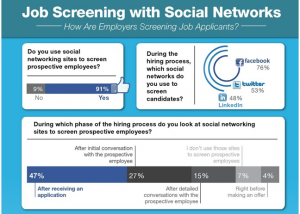
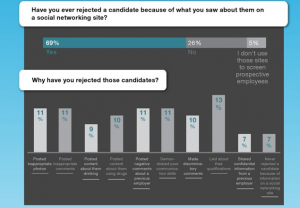
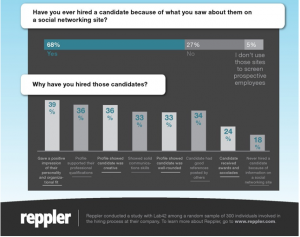
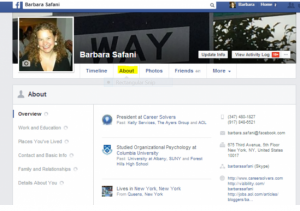
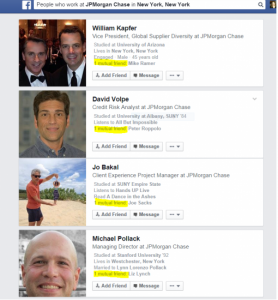
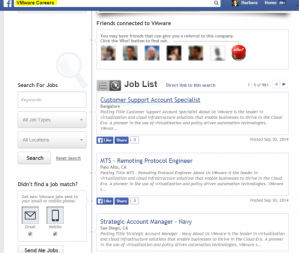
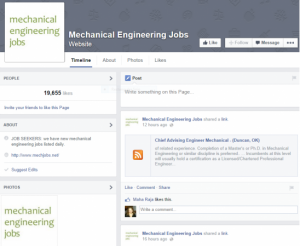
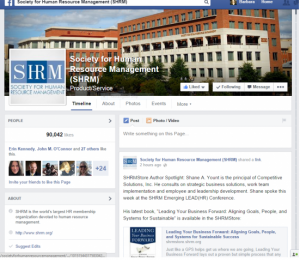

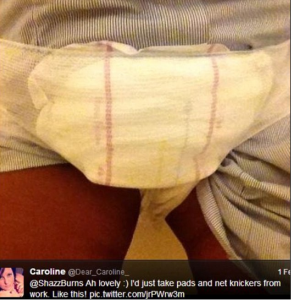
Hi…
thanks for sharing this information with us. You shared great content.
I enjoyed reading it thoroughly. This is very helpful for me. please keep sharing such blog with us. Next article awaited. I am sharing a link contains more information about social media marketing:
http://www.technocrab.co.uk/seo-company-birmingham.html